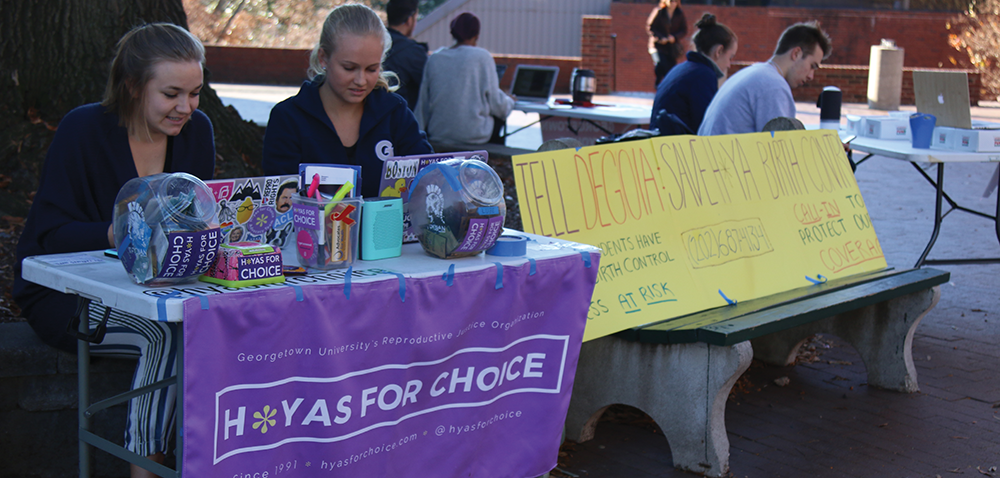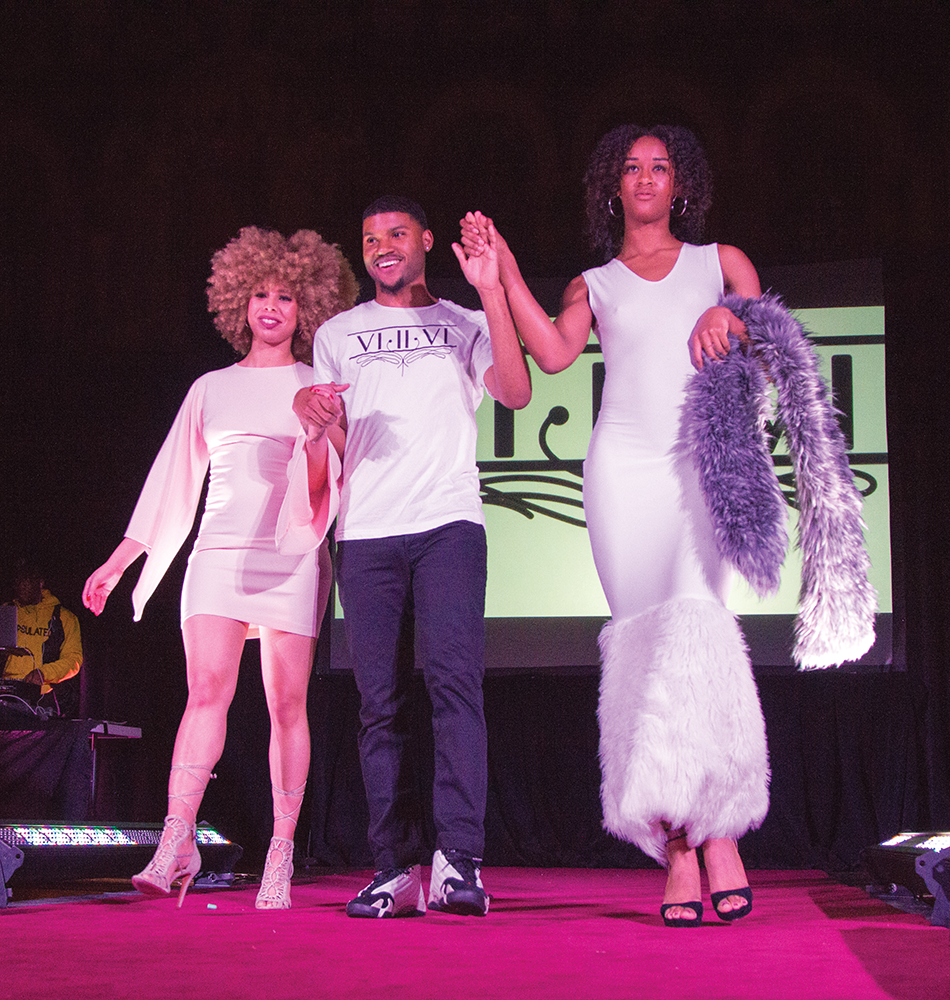THE DRUG ISSUE
From electronic cigarettes to the opioid epidemic, The Guide’s spring 2018 Drug Issue investigated drug use and drug culture at Georgetown University and in Washington, D.C. The cover story, “Despite Pushback, Student Drug Use Continues,” focused on Georgetown’s policies regarding drugs and alcohol. The article emphasized the university’s strict attitude toward drugs and alcohol, citing the 1988 closing of Healy Pub on campus and the Code of Student Conduct’s lack of distinction between marijuana and other hard drugs. Despite the university’s harsh policies, Georgetown’s intense stress culture may lead students to not just abuse party drugs like marijuana and alcohol but also to become dependent on performance-enhancing drugs. The most common performance-enhancing drug used on campus is caffeine, which is followed by pills like Ritalin and Adderall, according to Dr. Vince Winkler Prins, MD, assistant vice president of student health.
Stepping off campus and into the District, “Chronicling the Grass-Roots Fight for Legal Pot in DC” detailed the timeline of marijuana legalization in D.C. The article highlighted DCMJ, an organization dedicated to fighting for equal rights for marijuana users and growers in the District and will also be holding demonstrations specifically targeting college students later in the year. The Guide’s collection of varied perspectives paints a complex picture of the university and the District’s challenges and successes on drug issues.
MAKING A STATEMENT: THE ART AND POLITICS ISSUE
The fall 2017 Art and Politics Issue explored the intersections of activism and expression, focusing on the potential for political messages in art and its presence both on and around Georgetown’s campus. “Theater Sparks Dialogue on and off Stage” explored the role of theater in instigating social change through the testimony of students and professors who had taken part in campus theater productions. The article cited the performance “Stupid F—king Bird,” which explored the phenomenon of fake news, and referenced the Black Theater Ensemble’s tackling of police brutality in “The Hand That Feeds You.” By touching upon difficult issues, theater has the power to spark conversations and, in turn, social change.
On a different note, “Making Them Laugh: Comedy and Politics” delved into the D.C. comedy scene and how different comedy groups choose to engage with politics. Sean Lerner (SFS ’20), a member of The Georgetown Improv Association, said that the group intentionally avoids political topics because members want their show to be a break from the constant political dialogue of the District. By contrast, Mark Chalfant, artistic and executive director of Washington Improv Theater, said his group does an improvisational presidential debate around the same time as the national presidential elections.
However, performing arts are only one aspect of culture as activism. “Being a Conscious Consumer in the District” profiled local businesses that promoted sustainability like the Farmers Restaurant Group, which owns the Farmers Fishers Bakers restaurant on Georgetown’s waterfront. The Farmers Restaurant Group’s chairs are made from sustainable materials; it composts its food and promotes locally produced goods by using honey from The George Washington University’s bee-keeping colony. Since Georgetown and D.C. are the center of the U.S. political world, it is no surprise that the food and art of the District reflect a passionate response to current events. The Art and Politics issue took a sharp look at regional artists’ use of self-expression to foment change.
THE SEX ISSUE
The Guide’s fall 2017 Sex Issue dove headfirst into how Georgetown’s administration and students navigate sex and sexuality on campus, discussing the tension that can exist between Georgetown’s Jesuit identity and modern sexuality. The cover story, “Toeing the Line: Free Speech and Sex on Campus,” detailed Georgetown’s complicated relationship with unrecognized clubs like H*yas for Choice and the troubles that the club’s leadership runs into when trying to make their voices heard. H*yas for Choice Co-Presidents Michaela Lewis (COL ’18) and Annie Mason (COL ’18) shared that institutional problems keep the club from reaching its full potential, though they are able to make their voices heard. In response, Amelia Irvine (COL ’20), president of Love Saxa and former president of GU Right To Life, said H*yas for Choice cannot be recognized, in order to uphold the university’s Catholic teachings. Bringing a third perspective, Chad Gasman (COL ’20), president of GU Pride, views Love Saxa as a hate group that promotes a homophobic agenda. The plethora of opinions on campus showcases the complexity of the intersection between free speech and sex.
“Contraception 101: Better Safe Than Sorry” again touched upon the divisions on campus regarding sexual autonomy and contraception, mainly focusing on the different forms of contraception available to students. The article cited a study by the Guttmacher Institute, which revealed that only 60 percent of young women and 55 percent of young men have been given “formal instruction about methods of birth control.” To increase awareness of birth control methods, the article discussed the effectiveness and price of different forms of birth control, from the pill to the diaphragm.
“Debunking Common College Sex Myths” used data to dispel frequent misconceptions about sex, revealing, for example, that the withdrawal method is only effective 78 percent of the time and that 24.5 percent of women aged 18 to 24 masturbate a few times per month to weekly. Overall, the Sex Issue sought to untangle the sensitive issues surrounding sexuality at Georgetown.
















